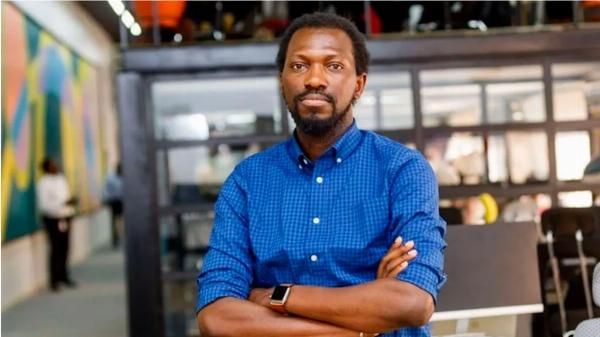 Content Gap Analysis – Find What Competitors Are Missing!
Content Gap Analysis – Find What Competitors Are Missing!
The Art of Storytelling: How Anime Connects Through Emotions
Written by Prometheuzhrt » Updated on: November 18th, 2024

Anime, a cornerstone of Japanese pop culture, is more than just animated entertainment; it is an art form that masterfully tells stories, leaving viewers deeply connected to its characters, themes, and emotions. Over the years, anime has evolved into a global phenomenon, captivating millions with its unique ability to convey profound narratives and evoke powerful emotions. Let’s delve into the artistry of anime storytelling and explore how it connects with audiences on an emotional level.
Emotion-Driven Narratives
One of anime defining characteristics is its focus on emotion-driven storytelling. Unlike conventional animation, anime often prioritizes deep character development and intricate plots. This emotional depth allows viewers to form strong connections with the characters and their journeys.
For instance, in Clannad
After Story, the narrative explores themes of love, loss, and the struggles of parenthood. Through heart-wrenching scenes and realistic character growth, viewers experience a rollercoaster of emotions, making the story unforgettable. Similarly, Your Lie in April uses music as a medium to explore grief and healing, leaving audiences in tears while delivering a message of hope and resilience.
These stories transcend cultural boundaries, touching universal human experiences and emotions. Whether it’s the joy of achieving a dream, the pain of unrequited love, or the sorrow of loss, anime has a way of making these feelings relatable and deeply personal.
Complex Characters with Relatable Struggles
Anime characters are rarely one-dimensional. They are crafted with layers of complexity, showcasing a mix of strengths, flaws, and growth over time. This realism allows audiences to see themselves in these characters, creating a sense of empathy and understanding.
Take Attack on Titan, for example. Eren Yeager, the protagonist, begins as a determined and idealistic character but gradually evolves into someone grappling with the weight of his decisions and the consequences of his actions. His transformation mirrors the complexities of human morality and the challenges of making choices in dire situations.
In Naruto, the titular character’s journey from an outcast to a respected leader resonates with viewers who have faced rejection or adversity. His perseverance and optimism inspire audiences to believe in their own potential, fostering an emotional connection that transcends the screen.
Mastery of Visual and Musical Storytelling
Anime excels in combining visuals and music to amplify its emotional impact. Vibrant animation, detailed character expressions, and dynamic settings create a visually immersive experience. Coupled with evocative soundtracks, anime transforms ordinary scenes into moments of emotional brilliance.
For example, Studio Ghibli films like Spirited Away and My Neighbor Totoro use breathtaking landscapes and subtle facial expressions to convey complex emotions without words. In Your Name, the stunning animation of the starry skies and cityscapes, paired with Radwimps’ emotive soundtrack, creates a sense of wonder and longing that lingers with viewers long after the credits roll.
This synthesis of art and music enhances the storytelling, ensuring that even non-verbal moments resonate deeply. Whether it’s the swell of an orchestra during a climactic battle or the soft strum of a guitar in a quiet, heartfelt scene, anime knows how to use sensory elements to tug at the heartstrings.
Themes That Resonate Universally
The themes explored in anime often reflect universal truths about humanity. Friendship, love, sacrifice, and resilience are recurring motifs that resonate with viewers from all walks of life.
In One Piece, the theme of friendship takes center stage as Luffy and his crew face countless challenges together. Their unwavering loyalty and support for one another highlight the importance of bonds in overcoming adversity. Similarly, Fullmetal Alchemist: Brotherhood delves into themes of sacrifice and the consequences of ambition, posing moral questions that challenge viewers to reflect on their own values.
By addressing these universal themes, anime bridges cultural gaps, making its stories accessible and emotionally impactful for a global audience.
Exploration of Taboo and Philosophical Topics
Anime is unafraid to tackle taboo or thought-provoking topics that other mediums might shy away from. Whether exploring existential dilemmas in Neon Genesis Evangelion or questioning societal norms in Death Note, anime often dives into the depths of human psychology and philosophy.
These narratives invite viewers to ponder profound questions about life, morality, and identity. Erased, for example, combines a murder mystery with themes of redemption and justice, keeping viewers on the edge of their seats while addressing complex societal issues.
By weaving these topics into engaging stories, anime not only entertains but also challenges its audience to think critically and empathetically about the world around them.
Cultural Expression Through Storytelling
Anime is deeply rooted in Japanese culture, yet its stories resonate globally. This cultural expression adds depth to its storytelling, introducing audiences to traditions, values, and perspectives unique to Japan.
For instance, Demon Slayer incorporates elements of Japanese folklore and traditional art styles to enrich its narrative, while Spirited Away delves into themes of spirituality and environmentalism through a distinctly Japanese lens. These cultural nuances add layers of meaning to the stories, offering international viewers both entertainment and education.
The Power of Connection
Ultimately, anime’s power lies in its ability to connect with its audience. Through relatable characters, universal themes, and emotionally charged storytelling, anime creates a bond that transcends language and cultural barriers. It invites viewers into its worlds, encouraging them to laugh, cry, and grow alongside its characters.
In a world where genuine emotional connections are increasingly rare, anime provides a sanctuary for empathy, understanding, and shared experiences. It reminds us of our humanity and the beauty of storytelling as an art form.
Note: IndiBlogHub features both user-submitted and editorial content. We do not verify third-party contributions. Read our Disclaimer and Privacy Policyfor details.
Copyright © 2019-2025 IndiBlogHub.com. All rights reserved. Hosted on DigitalOcean for fast, reliable performance.













